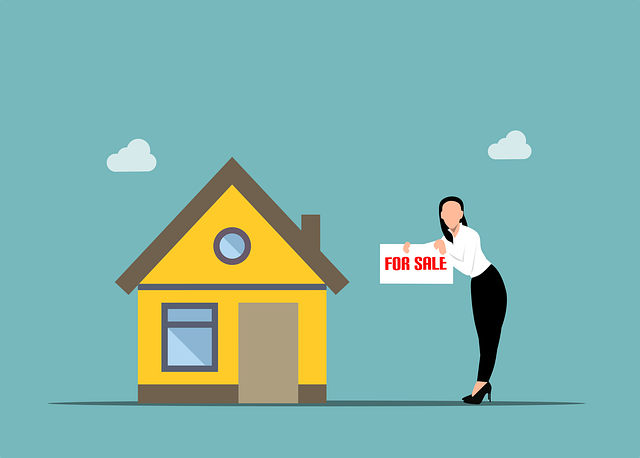When considering buying property in Singapore, understand that freehold properties offer complete ownership, while leasehold properties provide a right to occupy for 99 years before reverting to the government. There are also Condominiums with shared ownership of common areas. The buying process involves thorough research, engagement with agents or lawyers, submitting offers, negotiating, signing an S&P agreement, loan approvals, legal documentation with the Land Registry, and ownership transfer.
Understanding ownership rights is crucial when buying property in Singapore, a bustling metropolis with a vibrant real estate landscape. This guide navigates the intricate tapestry of property ownership, from the different types—freehold, leasehold, and strata titles—to the step-by-step process of acquisition. We delve into your rights and responsibilities, highlighting restrictions and regulations, and offer insights into protecting your investment through knowledge of relevant laws and dispute resolution. Whether you’re a first-time buyer or an experienced investor, this article is your compass in navigating Singapore’s property market.
- Who Owns What: Types of Property Ownership in Singapore
- – Explaining the different types of property ownership available in Singapore
- – Detailed breakdown of freehold, leasehold, and strata titles
- Acquiring Ownership: The Process of Buying Property in Singapore
Who Owns What: Types of Property Ownership in Singapore
In Singapore, property ownership is governed by different types of freehold and leasehold rights. Understanding these distinctions is crucial when buying property in Singapore. Freehold properties are owned outright by the individual or entity, providing absolute control over the land and any structures built upon it. These properties come with a title deed that demonstrates full ownership rights, including the right to sell, let out, or develop the land as desired.
Leasehold properties, on the other hand, are held under lease from the government or a private landowner for a specified period. The property owner has the right to occupy and use the property during the lease term but does not own the underlying land. After the lease expires, ownership reverts back to the government or original landowner. When buying a property in Singapore, it’s essential to discern between these types to ensure you acquire the rights that align with your intended use and long-term goals.
– Explaining the different types of property ownership available in Singapore
In Singapore, individuals have several options when it comes to property ownership, each with its unique characteristics and implications for buying property in Singapore. The primary types include freehold, leasehold, and Condominium (or private housing developments). Freehold properties offer outright ownership of both the land and building, providing greater flexibility and longer tenure without rent payments. These are typically owned by individuals or entities for an indefinite period, making them a popular choice for long-term investment.
Leasehold properties, on the other hand, involve owning just the building on top of leased land from the Government or a private landowner. The lease has a fixed term, usually 99 years from the date of completion, after which the property reverts to the landlord. Buying a leasehold property in Singapore involves paying a premium based on the remaining lease period and the property’s value. Condominiums are multi-unit buildings where each owner holds individual freehold or leasehold rights to their unit but shares common areas with other owners. This arrangement allows for greater access to facilities while spreading maintenance costs, making it an attractive option for many buyers in Singapore.
– Detailed breakdown of freehold, leasehold, and strata titles
When considering Buying Property In Singapore, understanding ownership rights is crucial. In Singapore, properties can be owned under three main types of titles: freehold, leasehold, and strata. Freehold properties offer the owner absolute ownership rights to both the land and any buildings on it, similar to owning a piece of land with a house built upon it. This is the most desirable form of ownership as it provides maximum control and flexibility.
Leasehold properties, on the other hand, are leased from the government for a specified period, typically 99 years. The owner has rights to use and occupy the property during the lease term but does not own the land itself. Strata titles, also known as Condominiums, involve shared ownership of common areas within a building complex. Each unit owner holds individual ownership of their specific unit while sharing responsibilities for maintaining common spaces. This arrangement allows for more affordable housing options in high-rise buildings, popular among those seeking convenience and community living when Buying Property In Singapore.
Acquiring Ownership: The Process of Buying Property in Singapore
Acquiring ownership of property in Singapore involves a structured process designed to protect both buyers and sellers, reflecting the city-state’s commitment to fair and transparent real estate transactions. The journey begins with thorough research into the desired property, considering factors like location, condition, and market value. Once a suitable option is identified, prospective buyers will engage an agent or lawyer to facilitate the purchase, ensuring all legal and financial aspects are handled correctly.
The actual buying process involves submitting an offer, which may be accepted, rejected, or negotiated. Upon acceptance, a sale and purchase agreement (S&P) is signed, formalizing the terms of the transaction. Subsequently, buyers will need to obtain approval from relevant authorities for loan funding, if applicable, and complete necessary legal documentation. This includes registration with the Land Registry, finalizing the transfer of ownership, and securing the property’s title in their name.
When considering buying property in Singapore, understanding ownership rights is paramount. This article has provided a comprehensive overview of the different types of property ownership available, including freehold, leasehold, and strata titles. By knowing who owns what, you can make informed decisions about your investment. Navigating the acquisition process with this knowledge ensures a smoother journey towards securing your piece of Singapore’s vibrant tapestry.
